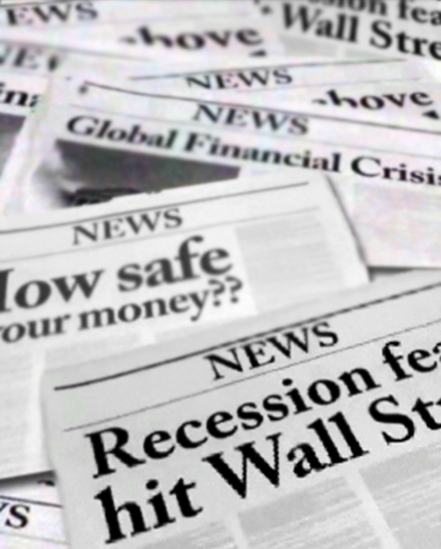 “Recency bias” is a tendency to give greater importance to more-recent events than to less-recent events. Recency bias is just another way of saying people tend to expect the future to be some predictable version of the recent past. Which it is, except when it isn’t.
“Recency bias” is a tendency to give greater importance to more-recent events than to less-recent events. Recency bias is just another way of saying people tend to expect the future to be some predictable version of the recent past. Which it is, except when it isn’t.
Extrapolating the future of financial markets directly from the past is called “investing with a rear-view mirror.” Sounds dumb when put that way, but we all are susceptible. I grew up during the raging inflation generated by President Lyndon Johnson’s “guns and butter” fiscal policy. Because that was my personal experience, a directly emotional one, I may have overweighted my expectations of inflation in the here and now. I certainly have lost a few bucks expecting a rise in interest rates due to inflationary pressures which have yet to surface.
In the past decade we have had the dot-com bust, September 11th, an unprecedented housing bubble, historically-low Treasury bill rates (virtually zero on 90-day notes at one point), and now what looks like the longest and deepest recession since the Great Depression. That is five events in 10 years that are chart toppers. They are off-the-wall events that have not happened before, so how can an extrapolation of the past predict them?
It has been said, “He who ignores history is doomed to repeat it.” History has much to teach us, but the future will never be an equivalent replication of the past. I have learned much over the years and I am grateful for my lessons. But, at times, I also am fearful that they may blind me to new ways of learning and seeing.
This is a reminder that awareness of our tendencies and predispositions is an excellent tool for good decision-making and an effective life.


0 Comments